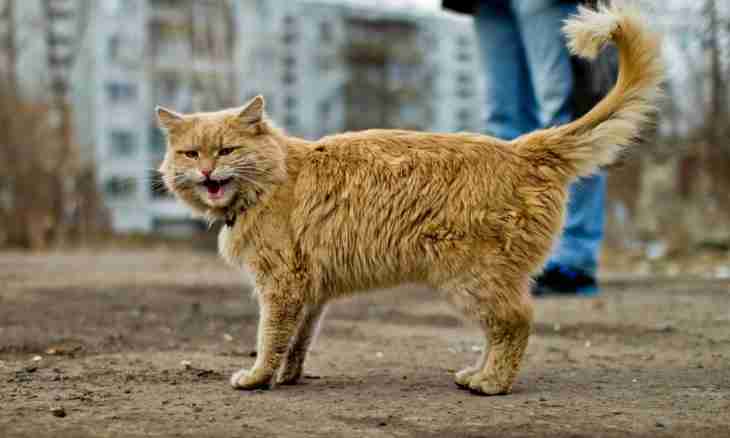Do you plan to get a domestic cat? Then you should consider a possibility of its castration. Otherwise it inevitably and quickly will begin to give you trouble and to spoil a house situation. Begin with what cat you get — thoroughbred or not. If it is not purebred animal, then his castration is quite appropriate. But if it is the representative of any valuable breed, then in the future you can want to receive from him kittens or to earn from his copulation just a little. In this case, certainly, you should not carry out castration.
What is castration for a cat? It is planned operation for which optimum age of an animal — the period from eight to nine months. An essence of this operation in a stop of work of testicles of a cat. Why optimum age such? The fact is that at this time your favourite will be already almost developed male, but he does not know anything neither about fight for the territory, nor about pairing yet.
Castration has a number of positive sides:
- Your favourite will cease to behave aggressively.
- The behavior of your animal will not change with age — will be same playful and obedient, as in the childhood.
- The term of life of a cat considerably will increase.
- Your cat will be protected from a set of the diseases affecting an urinogenital system.
- At a cat sexual desire and the related moments, unpleasant for you (unpleasant smell, damage of furniture, aggression, tendency to vagrancy) completely will disappear.
Unfortunately, similar operation, as well as any other medical procedure, has also negative consequences:
- Abscess and infection — it can occur at inexperience or low qualification of the veterinarian.
- Developing of a serious cardiovascular illness — it happens most often to old animals, or having such predisposition.
- The complications caused by an anesthesia (dangerous decrease in body temperature, delay of hepatic metabolism, interruptions in work of heart and vessels) — at individual intolerance of the medicines applied to an anesthesia.
- The urolithic disease — usually develops at too early carrying out operation (at a kitten then still a defective urinogenital system), or at a hypodynamia and the insufficient use of water and healthy food.
- Obesity — arises at excess food (for the castrated cats norm of food 10-20% lower, than for not undergone such operation) and hypodynamias.
If, having considered all pluses and minuses of castration of your future pet, you decided on its carrying out, then you need to know about the main methods of performing castration:
- Medicamentous oppression of testicles by means of pharmaceutical medicines — an injection or in the form of a tablet to your cat inject special drug, but its action is temporary (no more than a few months).
- Sterilization — not absolutely full castration as the animal keeps sexual desire (with all consequences accompanying it), but becomes incapable to have posterity.
- Surgical removal of testicles — classical and most reliable operation.
- Chemical suppression of normal work of testicles by means of their radiation — is considered safe operation, but nevertheless all possible consequences of receiving high doses of radiation are well-known.

